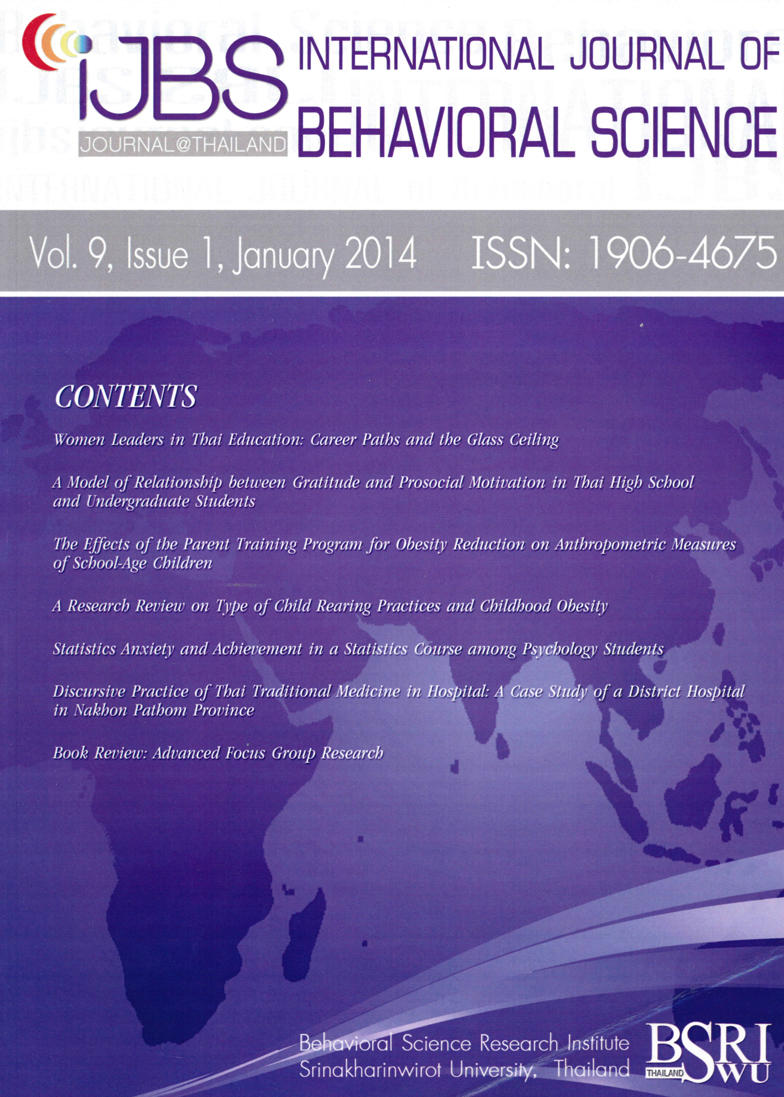Mechanisms of Motivational Program to Increase Perceived Self-efficacy of Healthy Eating among Thai Elderly with Hypertension and Hyperlipidemia
Main Article Content
Abstract
The purpose of this study was to identify the mechanisms of a motivational program to increase perceived self-efficacy of healthy eating among Thai elderly, 60 years of age and older, having diagnosed with hypertension and hyperlipidemia. Purposive sampling was used to obtain 66 elderly to participate in the motivational program. The program comprised health education, focus group discussion, eating monitoring, and counseling. Quantitative data assessing the elderly’ perceived self-efficacy of healthy eating, blood pressure and triglyceride levels were analyzed by one-way repeated measure ANOVA. Qualitative data from focus group discussion and counseling were analyzed by content analysis. The results revealed that at the 1-month, 3-month and 6-month motivational program, elderly reported significantly increased perceived self-efficacy of healthy eating while their blood pressure and triglyceride levels significantly decreased. In addition, gaining knowledge, a sense of empowerment and self-confidence that elderly received from focus group discussion and counseling increased their self-efficacy to better managing their eating behavior. The recommendation was that the motivational program as a form of mutual aid could offer great benefits to promote healthy eating among Thai elderly with hypertension and hyperlipidemia.
Keywords: elder, healthy eating, hyperlipidemia, hypertension, self-efficacy


